The whole world is no doubt shocked by the horrific shooting of people in the Crocus shopping center near Moscow. Regardless of where such events take place, there is no justification for them, and the country where they happen always receives general sympathy and a certain indulgence for harsh and brutal actions. The extreme case of the Hamas terrorists’ attack on Israel is a direct indication of this.
It can be assumed that in Ukraine, whose civilians are being killed by Russia on a daily basis, a certain empathy for innocent victims has also emerged. Moreover, Russian news highlighted the presence of popular comedian Sergei Svetlakov, who is not only popular in Ukraine but also publicly opposed Russia’s invasion of Ukraine.
Despite the fact that the alleged perpetrators (according to reports) have already been detained and we have their first photos, there is no confidence in what they will say during interrogations by the FSB. Especially because there have already been reports that the criminals broke through to the border with Ukraine because they “had contacts on the Ukrainian side.” I wonder if this is the first thing the caught cold-blooded killers said and we are supposed to believe it?
Therefore, the question of what it was and who is behind it requires an immediate, objective and reasonable answer. The research and analysis group InfoLight.UA has been closely monitoring the dynamics, content, and tone of most Russian sources’ reports. The first conclusions are as follows:
1. Information that the perpetrators were non-Slavic appeared almost immediately. When the terrorist attack was still in progress, and the source was the direct participants, whose words were spread by numerous telegram channels, it was simply impossible to clean up the information space.
Important: It was at this moment that a strange technical failure occurred in the messenger, when messages (text) were distributed, but videos and photos were not uploaded.
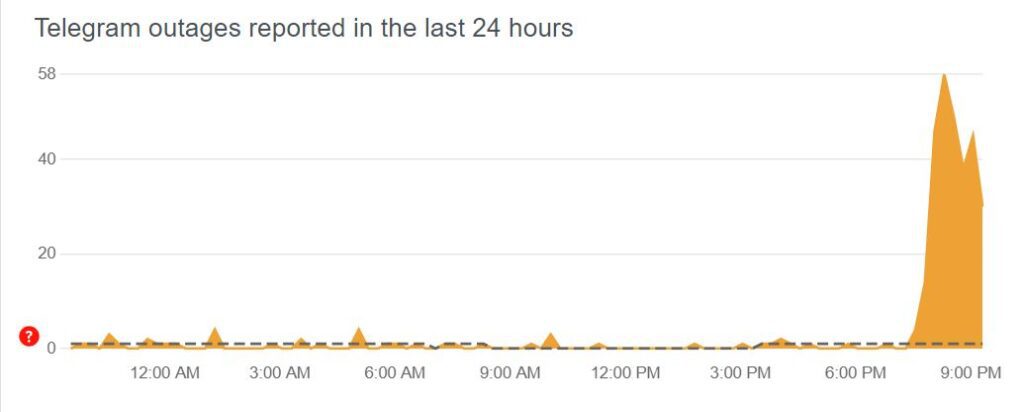
However, despite this, in the first hours, most of the channels affiliated with the Russian special services and ordinary propagandists spread the version of the involvement of Ukraine and its special services (they called the SBU and the GUR) as widely as possible. In other words, without any facts, contrary to the description from witnesses and footage from numerous videos, the “perpetrators were identified” and immediate and severe punishment was demanded.
Then there was a strange throw-in from telegram channels affiliated with the Russian special services, which published allegedly photos of wanted terrorists from Ingushetia, who were identified half an hour later as killed in another operation. This immediately led to the conclusion that Ukraine was covering its tracks. It was not specified how Ukraine could have posted the information on the channel controlled by the Russian special services, however.
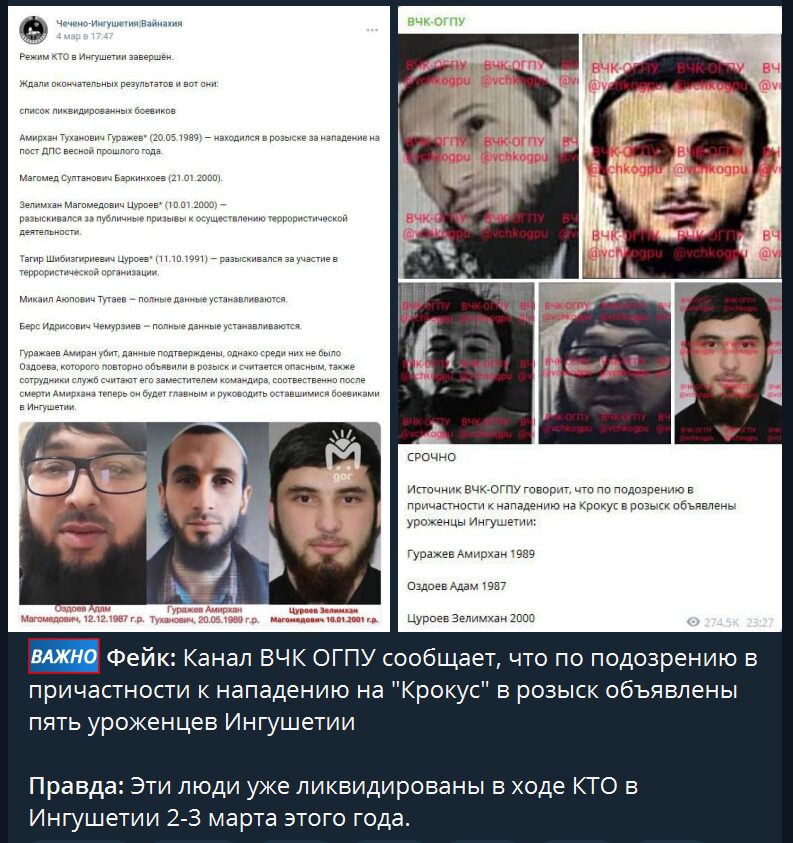
The hysteria continued for several hours, until at some point someone ordered them to pause. The organizers probably calculated the consequences, analyzing the information space and the leakage of real information that is inevitable in an operation of this magnitude. Because very uncomfortable questions have arisen about how, despite the extraordinary security measures in Moscow, the overabundance of cameras and security forces, the criminals not only managed to enter and shoot dozens of people, but also to escape quietly.
The next important point is the constant appeal to the warning from the US and UK embassies, which in early March urged their citizens in Russia to avoid crowded places, including concerts. This was cited as evidence of involvement.
However, later it became clear that the United States and Britain could easily prove that the information they knew was passed on to the Russian special services, and thus the spread of such accusations directly indicates that the FSB ignored the warnings and was directly responsible for the tragedy.
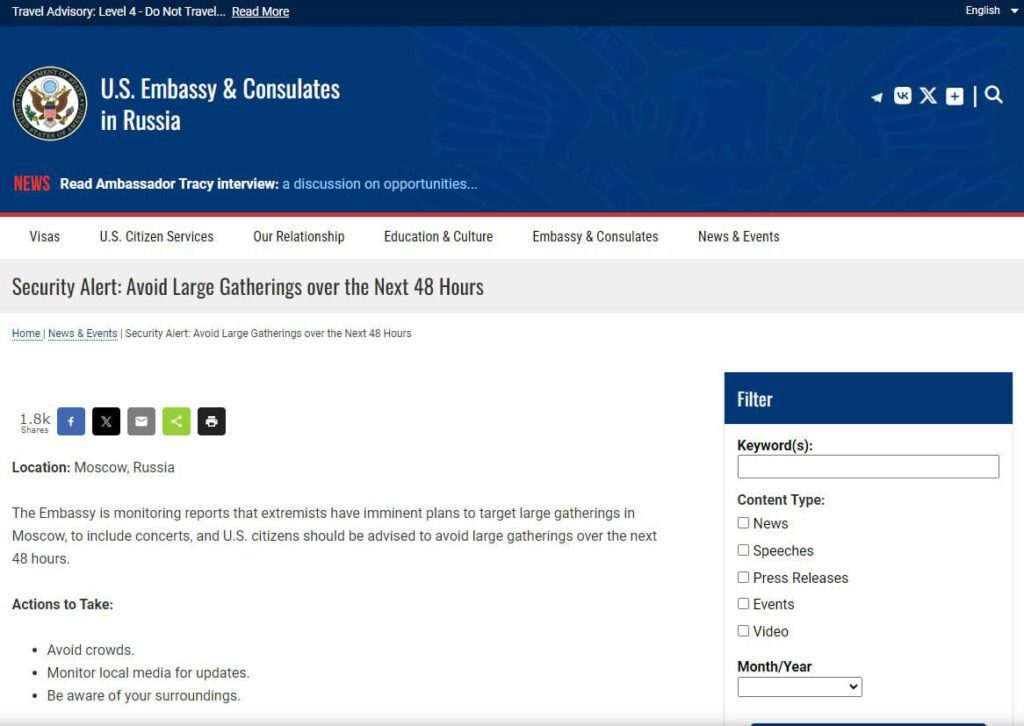
After the alleged perpetrators were detained 100 kilometers from the Russian-Ukrainian and Russian-Belarusian borders and their photos were published, the number of questions increased even more.
For example, how were criminals going to cross it? Even if there are “contacts on the Ukrainian side,” are there really no security officials on the Russian side at all? And this is at a time when active hostilities are taking place right on this site! So, if the criminals were preparing to cross the border in this area, it is not guaranteed that they would have entered Ukraine, and it is guaranteed that they would have received assistance from the Russian side. At the very least, from the Russian border guards who are part of the FSB.
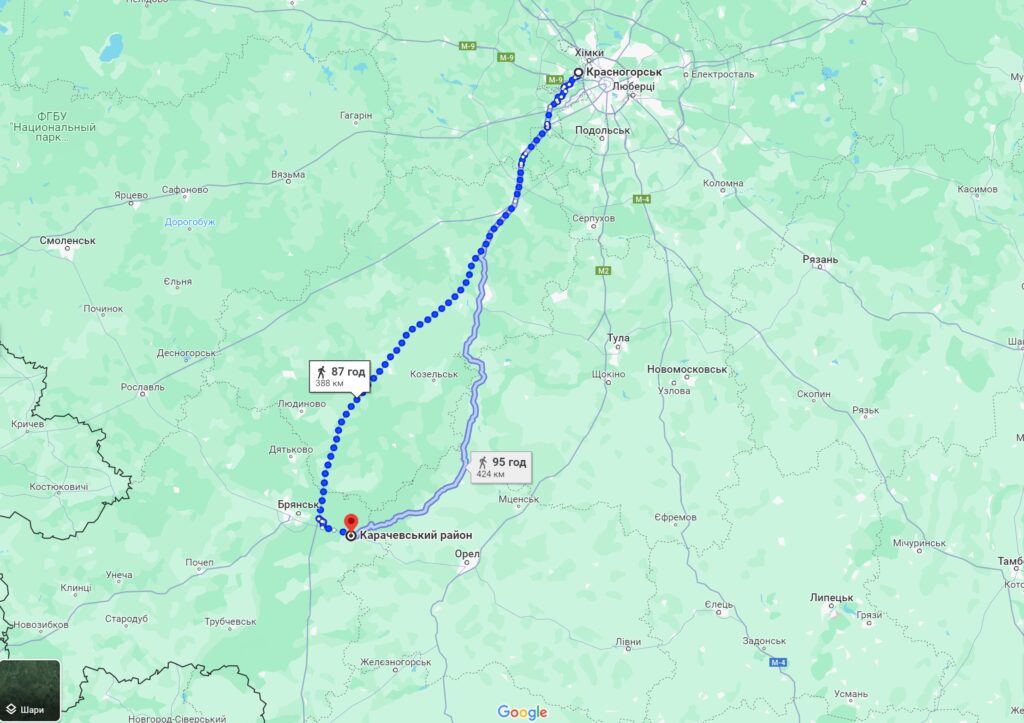
The behavior of criminals is also an important factor. They fled, although such attacks are characterized by suicides with the victims and the voicing of demands, or at least reasons. Accordingly, the criminals wanted to survive. But how did they cover a distance of more than 300 kilometers without being noticed? Why, having prepared so thoroughly, did they not do the simplest thing – buy a few spare cars to change on the way? Was it because they were guaranteed security by the Russian special services?
And a few additional observations.
First, a rather cheap throw-in with the statements of NSDC Secretary Danilov, whose sole purpose is to stir up hatred towards Ukrainians.
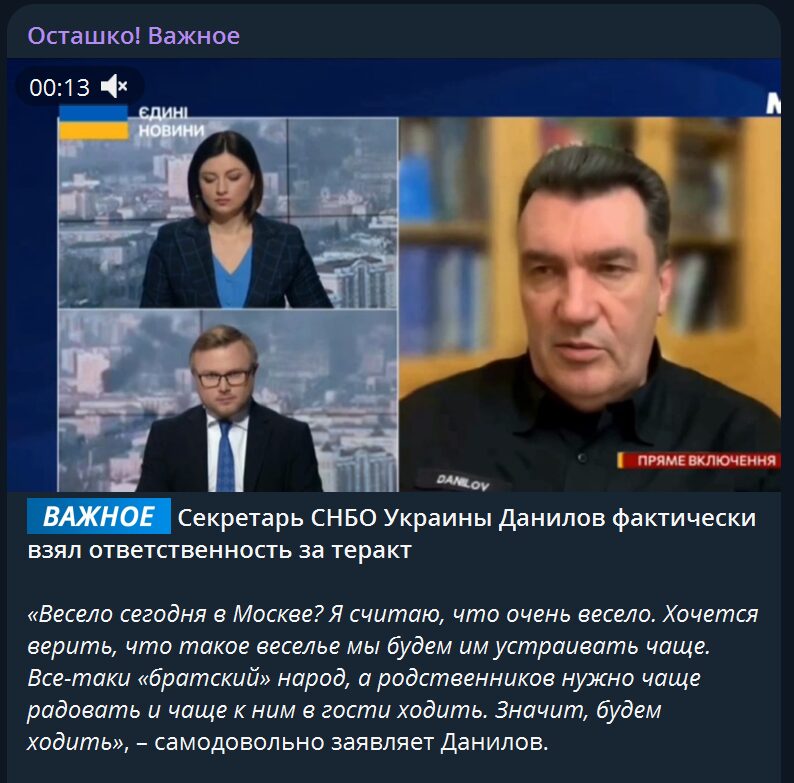
Also, the tactics of the criminals were very similar to the actions of Hamas terrorists during the attack on Israel, with whom Russia has absolutely friendly relations. And it is quite possible to assume that they were recruited by Tajikistan.
In any case, the role of the FSB should be studied in great detail, at least in the information support of this tragedy, assuming that this special service is, if not the direct organizer (it may have been an Islamist terrorist attack), then the force that is trying to use the event to launch a radical scenario of a Russian-Ukrainian war.
We at InfoLight.UA Research and Analytical Group are taking this situation under special observation and will share new findings.
Update
Belarusian Ambassador to Russia Dzmitry Krutoy said on March 23 that Belarusian special services assisted Russia in detaining the alleged participants of the terrorist attack near Moscow, and the main task was “to prevent them from leaving through our common border.”
“Since yesterday, active interaction has been carried out through the special services. The head of the State Security Committee is in direct contact with his counterpart. And in fact, the main task last night was to prevent terrorists from crossing our common border. This task has been accomplished,” the ambassador said.
In this regard, the question arises: what border did the criminals plan to cross?
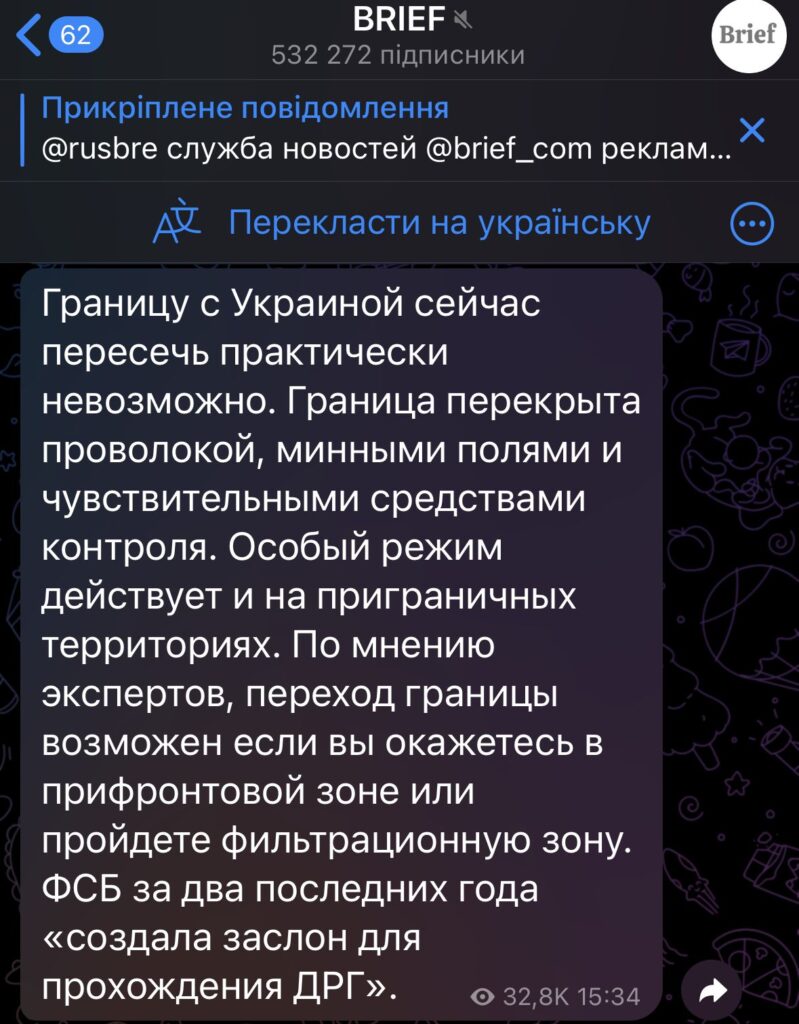
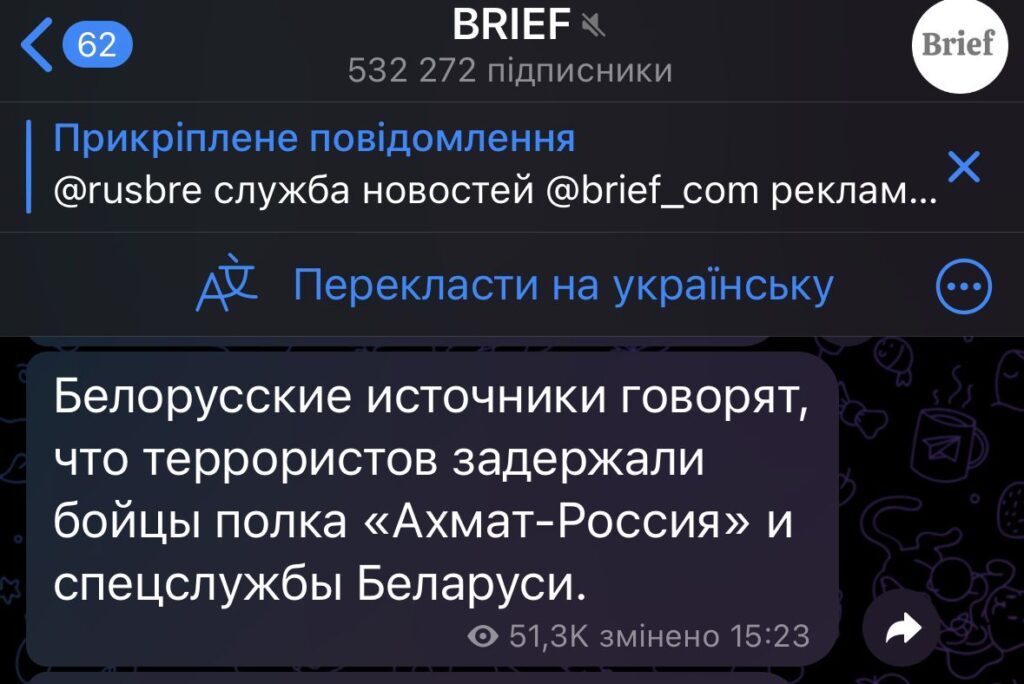

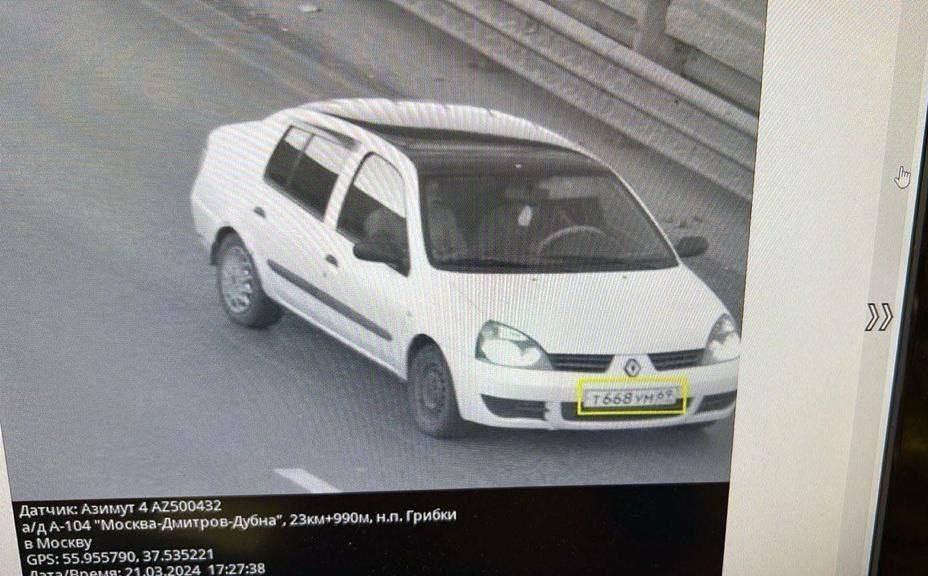
Leave a Reply